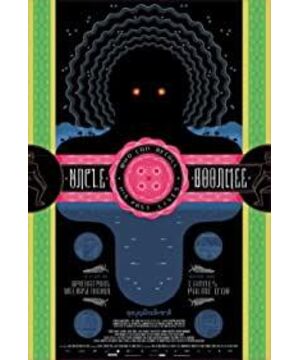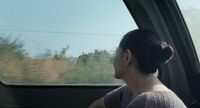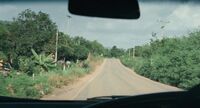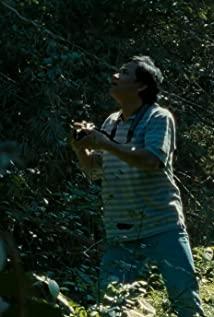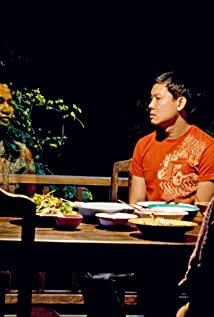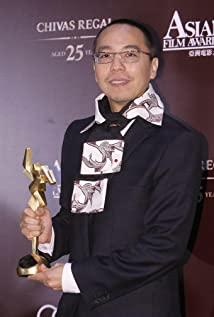There is a kind of film, I want to call it "awareness" film. This category is more special. On the one hand, it cannot be compared with commercial genres, which is naturally meaningless (art films are always at the forefront of exploring the possibilities of imaging, rather than entertainment products for the masses); on the other hand, in the same literature and art, Among experiments and pioneers, it also seems to be solitary and independent-first, it does not try to connect with any audience; third, it does not try to say anything clearly (note, this is very important). It is presenting, presenting one's own "world after enlightenment". Of course, you can not believe it, or you can intuitively say you like or dislike it, but all the discussion of meaning will become a little redundant.
In my opinion, Apichatpong Weerashagu’s "The Past and Present of Uncle Bumi" is such an existence. In the eyes of most people, this film filled with tropical jungles, reincarnation, ghosts, ghosts, or Southeast Asian legends is an "evil complex." And its slow and solidified shots and trivial presentations that are too routine are a nightmare, "fade out of a bird" viewing experience.
Even the Palme d’Or, picked in Cannes, can be regarded as an accident, as a concentrated expression of the evil tastes of the judges (led by Tim Bolton), or as an expression of the Third World's catering to Western appetites— —These, in fact, are all indifferent things.
However, maybe you can also sit down and watch the death it shows you quietly, a true Eastern death—different from the calling, enlightenment and confession in Western movies—it is silent and speechless. , Is not sad or not, and the echo of ancient signs. In other words, when the road comes to an end, when you have to walk alone into the endless darkness, it is no longer painful fear, cold loneliness, but overflowing, expansive and accessible warmth.
The beginning of the film directly pointed out that "faced the jungle, hills and canyons, my previous life was like a beast, or another creature." The whole film naturally inevitably wandered between "the present world" and "the other shore", and these two , Which constitutes the twisted two-track context:
One is the 48 hours before Uncle Bumi, who had kidney cancer, on his deathbed-he and his brother-in-law and nephew moved into a wooden farm house on the edge of the jungle. At dinner, the ghost of the wife who died twelve years ago appeared, and the missing son returned home in the form of a monkey spirit. Afterwards, the group of people walked into the reckless jungle, and Uncle Bumi, accompanied by everyone, chattered about his past and future lives, and died peacefully in the cave. In the end, after the nephew and sister-in-law attended the funeral, they seemed to have their souls shelled, and they all saw another self.
The other context is the fragments of past lives, psychic or dreams that are broken up and interspersed in the film-like a dazed cow being pulled by a rope by the locals in the early morning mist (this cow is interpreted as Bumi’s previous life);
as his son Posson tells of the migration process of taking still photos of himself, escaping into the jungle, and being inspired to become a monkey spirit;
as in a dream of a nephew, the princess who passed away at age was abandoned by her old lover and took the gold The silver baht was thrown into the lake, and had a ritual sexual act with a catfish spirit;
it was like a group photo of a monkey spirit and a group of soldiers smiling side by side, and the soundtrack was Uncle Bumi talking about his afterlife. encounter.
At first glance, the plot seems to be bizarre and bizarre, but in fact the whole film is trying its best to stay away from the dramatic and strange images. The 16mm camera is only restoring the truth of the material world from beginning to end, monotonous and silent. .
After isolating city life, interpersonal entanglements, political society, and other secular normals, the film has been extremely keenly involved in Thailand’s reality, history, and future imagination-just by virtue of this, Cannes has no reason not to give it the highest Evaluation-For example, talking about illegal immigration in Laos, the status quo of monks, the atrocities committed by the Communist Party in the 1960s, and even Uncle Bumi's entry into the afterlife is a metaphor for a centralized and iron-blooded country. In the end, the nephew and sister-in-law stepped into a restaurant, and modern electronic products and pop music suddenly hit the old and primitive world before.
All of the above are the most profound insights into this world, although the premise and results of this insight all point to the most mysterious field. And the most rare thing is that in it, every living being can draw a sense of living in this world. This awareness makes survival a process of relaxation and fulfillment, and every living being becomes the closest person.
-----------------------
Attached to Uncle Bumi's soliloquy before death-
I opened my eyes, but I can't see anything, or I actually closed my eyes .
This hole is like a uterus. I was born here. I can't remember the things in the previous life.
I only know that I was born here. I don't know if I am a human or an animal, a woman or a man.
Last night I dreamed of the future. I took a time machine there. The city of the future is controlled by a power who can make anyone disappear.
If people from the past are found, they will be irradiated with a kind of light. That light projected images of those people on the screen. From the past until they enter the future world. Once the image disappears, the people from the past also disappear.
I was afraid of being caught by the rulers because I had many friends in the future, so I ran away.
They asked me if I remembered this road or that road, and I told them that I didn't know, and then disappeared.
View more about Uncle Boonmee Who Can Recall His Past Lives reviews


